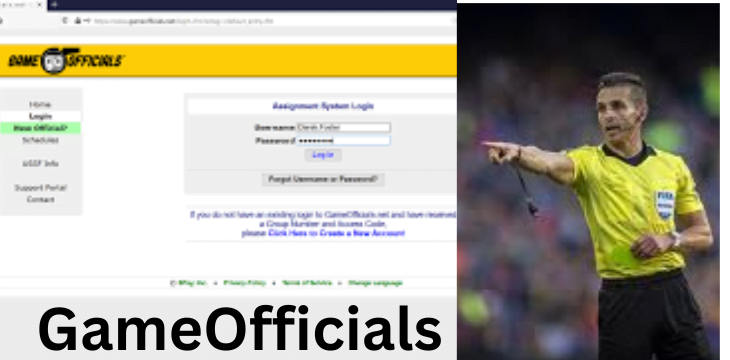Unlock the secrets of gameofficials with our comprehensive guide. Learn everything you need to know about gameofficials’ roles, responsibilities, and how they uphold fairness in sports.
Table Of Contents
Introduction:
In the realm of sports, gameofficials play a pivotal role in maintaining the integrity and fairness of competitions. From ensuring adherence to rules to arbitrating disputes, these unsung heroes are the guardians of fair play. In this detailed guide, we delve into the multifaceted world of game officials, shedding light on their duties, challenges, and the indispensable contributions they make to the sports community.
Understanding the Role of GameOfficials
Gameofficials, also known as referees or umpires, are responsible for overseeing sporting events and enforcing the rules of the game. Their primary objective is to ensure that competitions are conducted fairly and that all participants abide by the established regulations.
The Essential Attributes of Effective GameOfficials
Successful gameofficials possess a unique blend of qualities that enable them to excel in their roles. From keen observational skills to impeccable decision-making abilities, these individuals embody professionalism and integrity on and off the field.
The Evolution of Gameofficials
Over the years, the field of game officiating has undergone significant transformations, driven by advancements in technology, changes in regulations, and evolving societal norms. Understanding this evolution is crucial for aspiring game officials and seasoned veterans alike.
Embracing Technological Innovations
In today’s digital age, technology plays an increasingly prominent role in sports officiating. From instant replays to goal-line technology, innovations have revolutionized the way gameofficials make decisions and uphold fairness in competitions.
Adapting to Changing Dynamics
As sports evolve, so too must the practices and protocols of game officiating. Whether it’s adjusting to new rule changes or addressing emerging challenges, game officials must remain adaptable and responsive to the evolving landscape of sports.
Challenges Faced by GameOfficials
While game officiating can be immensely rewarding, it also comes with its fair share of challenges. From managing unruly players to navigating complex rule interpretations, game officials must possess the resilience and composure to overcome various obstacles.
One of the most daunting challenges for gameofficials is making split-second decisions in high-pressure situations. Controversial calls can spark heated debates among players, coaches, and spectators, underscoring the importance of impartiality and sound judgment.
Maintaining Control and Authority
Maintaining control over the game environment is paramount for gameofficials. Whether it’s diffusing confrontations between players or enforcing disciplinary measures, establishing authority ensures that competitions proceed smoothly and safely.
FAQs (Frequently Asked Questions)
How do game officials prepare for a match?
Gameofficials undergo rigorous training and preparation to ensure they are equipped to handle the demands of officiating. This includes studying rulebooks, attending workshops, and participating in mock scenarios to sharpen their skills.
What are the different types of game officials?
Game officials encompass a diverse range of roles, including referees, umpires, linesmen, and judges. Each role carries specific responsibilities tailored to the unique requirements of different sports and competitions.
How do game officials maintain impartiality?
Game officials are trained to maintain impartiality and neutrality throughout the duration of a match. This involves focusing solely on the application of rules and avoiding biases or external influences that may compromise their judgment.
What recourse do teams have against officiating decisions?
While officiating decisions are final during a match, teams may have recourse to file complaints or appeals after the fact. However, such processes typically involve stringent criteria and are subject to the governing body’s review and adjudication.
How does technology impact game officiating?
Technology has significantly impacted game officiating, offering tools such as instant replays, video assistant referees (VAR), and electronic scoring systems. These innovations enhance the accuracy and fairness of officiating decisions while providing valuable insights for review and analysis.
What measures are in place to ensure game officials’ safety?
Organizations responsible for overseeing sports competitions implement various measures to prioritize game officials’ safety. This may include providing protective equipment, implementing security protocols, and offering training on de-escalation techniques.
Conclusion:
Gameofficials serve as the custodians of fairness and sportsmanship, embodying the principles of integrity, impartiality, and professionalism. As we navigate the intricacies of game officiating, let us acknowledge and appreciate the invaluable contributions of these dedicated individuals to the world of sports.


